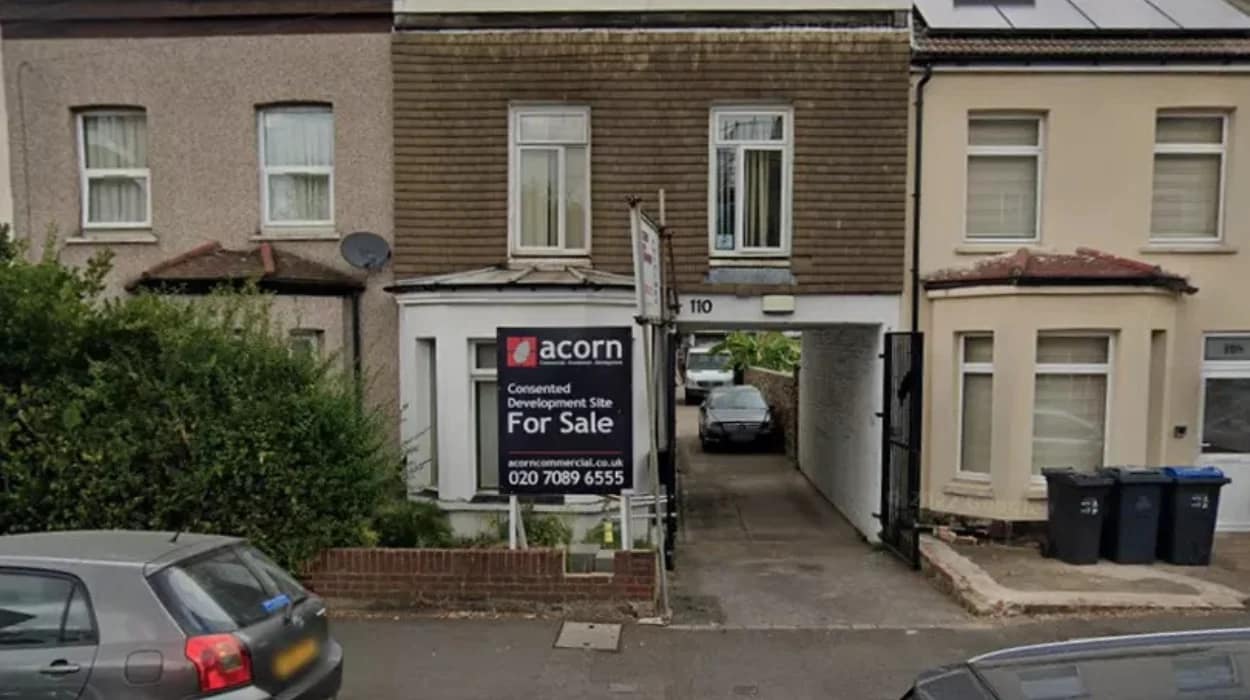Croydon (Parliament Politics Magazine) – A Croydon gang armed with machetes raided an Albanian-run cannabis farm, encountering gunfire during the heist, a court has heard.
The Croydon machete gang, who ‘brought knives to a gun fight’, got more than they bargained for during a raid on an Albanian cannabis farm, a court heard.
It is claimed that seven men and one boy, ages 17 to 32, were armed with knives and machetes while wearing balaclavas and construction gloves when they confronted gun-toting Balkan marijuana farmers.
Prosecutor Richard Job told jurors at Croydon Crown Court on Wednesday (April 23) how the group met in the early hours of July 7, 2023, and then went to the grow site at 110 Canterbury Road in Croydon.
After entering the outhouse, which housed a harvest worth hundreds of thousands of pounds, the group was met by opposition who attempted to’scare them away’, the court heard.
“These eight defendants agreed to work together to burgle a cannabis farm. That’s why they joined to be together in the early hours of the morning.
They armed themselves with knives,”
said Mr Job, adding:
“Unfortunately for the defendants they discovered they had taken knives to a gun fight.
One of the Albanian men had a gun which he fired at least once.”
Kieran Chambers, 32; Meldin Adeyele, 31; Derrell Fuller, 29; Taetre Wilson, 26; Tyrone Owusu, 25; Mickaydel Ayee, 22; Charles Ikaba, 20; and a 17-year-old boy who cannot be identified due to his youth, are all charged with aggravated burglary.
Adeyele is also charged with two counts of knife possession, as is the 17-year-old.
The raid was originally reported to police at 3:30 a.m., after a resident heard gunshots from his bedroom window.
When police arrived, they discovered many males attempting to leave by fleeing into surrounding gardens and climbing over roofs.
Three Albanian males who have now admitted to cultivating cannabis were discovered hiding between wheelie bins, while four more suspects – Mr Owusu, Mr Chambers, Mr Fuller, and the 17-year-old – were seized and arrested in the same location.
Mr Adeyele, Mr Wilson, Mr Ayee, and Mr Ikaba were only apprehended after officers matched their DNA to objects found at the site, the jury heard.
During their police questioning, none of the guys answered questions, although the youngest defendant did give a written statement alleging he was forced to attend the raid, according to the court.
According to Mr Job, police were able to acquire evidence from the 17-year-old’s phone, which showed him posing in a balaclava in front of a mirror and filming Snapchat videos from within a cannabis farm.
Jurors were told how Mr Owusu’s car was discovered parked on nearby Priory Road, and number plate recognition cameras revealed it had been in the area for a’reconnaissance mission’ the day before.
The vehicle also included Mr Owusu’s phone, as well as Mr Wilson’s phone and bankcard. Mr. Owusu was arrested in the garden of a nearby residence.
Police have discovered filthy and dangerous living conditions, unlawful electrical wiring, and substantial property damage from cannabis production during recent operations.
These conclusions are supported by the Croydon farm, since these farms frequently make buildings dangerous and unusable.
Mr Chambers, who was described as wearing ‘a distinctive long coat’, allegedly abandoned a Ford Focus that had recently been insured in his name on a nearby road.
The court heard that when he was caught that night, he was wearing a balaclava and construction gloves, as was Mr Fuller.
The youngest defendant, aged 15, was arrested while wearing a glove with a missing finger.
The missing portion was eventually located at the scene, and the youngster was arrested near a knife stashed in an abandoned vehicle, according to the court.
Mr Job told the jury that it was the prosecution’s case and that only the defendant could have placed it there.
The youth’s phone also included footage that the prosecution claims was captured inside Mr Owusu’s car and on the cannabis plantation.
“He was clearly excited to be in the farm with so many cannabis plants,” Mr. Job said.
CCTV cameras captured Mr Adeyele climbing a wall and throwing an object to the ground, which turned out to be a knife that could be linked with his DNA after being handed in by a member of the public, it is claimed.
Mr Ayee was also shown on camera putting gloves and a balaclava in a bin, both of which were recovered by police and DNA-matched to him, the court heard.
Mr Ikaba was also apprehended using CCTV and DNA, jurors learned. Mr Wilson, however, was not captured on CCTV.
Instead, his DNA was discovered on a drink bottle in Mr Chambers’ car, while his phone and bank card were discovered in Mr Owusu’s car, the court heard.
Mr Job told the jury that the men were charged with aggravated burglary conspiracy because ‘they agreed to be in joint possession of knives between them’.
The trial before Judge Elizabeth Smaller continues.
How does the Croydon raid compare to other recent cannabis farm raids?
Operation Mille, which recently saw hundreds of warrants executed nationwide and resulted in the recovery of over 48,000 cannabis plants valued at an estimated £48 million, along with weapons like pistols and machetes and hundreds of arrests, included the Croydon operation.
Given the scope of the campaign on industrial cannabis grows, the Croydon farm was one of many that were targeted.
Like previous raids, the Croydon operation found connections to violent and frequently armed organized crime gangs. Machetes and other weapons have been confiscated by police in several areas, underscoring the hazardous conditions near these farms.
The Croydon raid, like earlier London operations, including those conducted by the Metropolitan Police, probably raised worries about “cuckooing,” the practice of gangs using people’s premises to operate cannabis farms.


